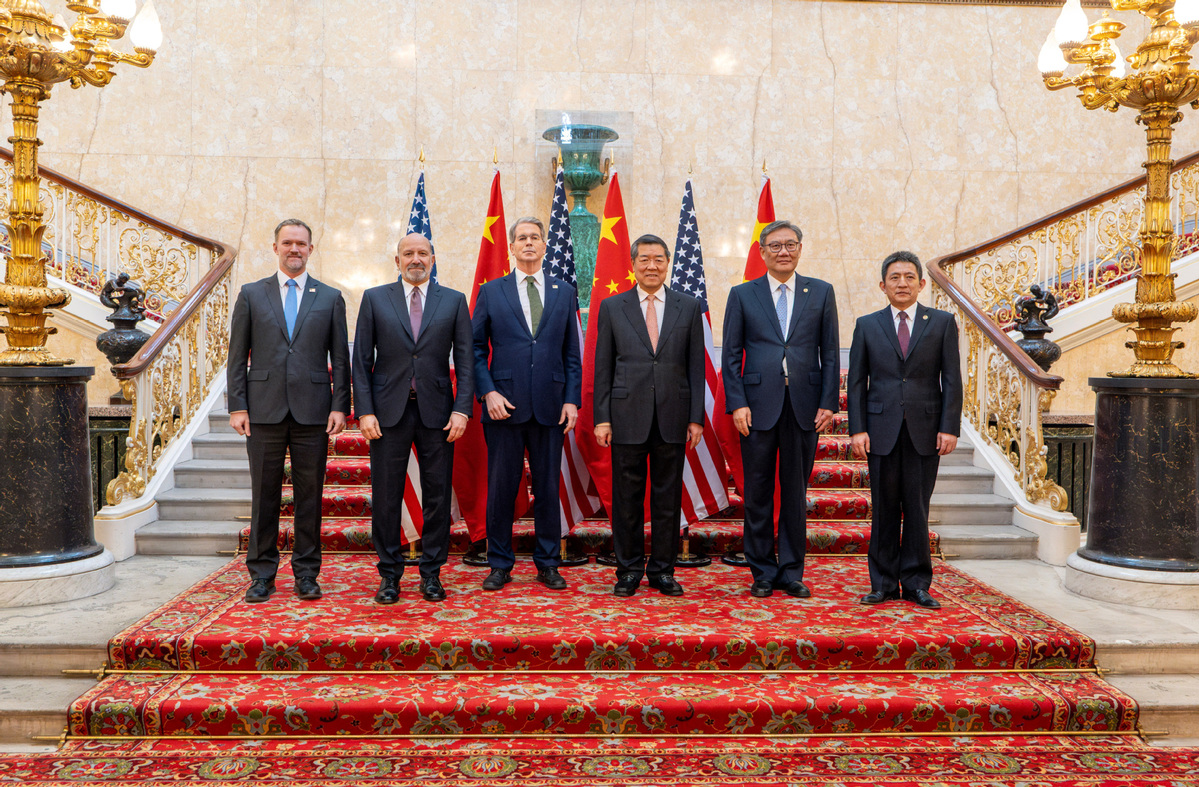US needs to have correct perception of the give-and-take of trade talks: China Daily editorial


Since the London meeting is the first of the China-US economic and trade consultation mechanism, that the two sides have agreed on a framework for implementing previous consensus in principle should be taken as an encouraging sign that the world's two largest economies are still managing to keep the resolution of their trade disputes on the right track.
Although the details of what the Chinese side called "professional, rational, in-depth and candid" exchanges remain unknown, whether the United States will release its ever-tightening high-tech export restrictions against China in exchange for the latter easing its export controls over rare earths products was widely thought to be a focus of the discussions, which for the first time involved the chiefs of the departments overseeing the moves of both sides.
China recently started easing its rare earths export controls by approving more licenses to verified entities that meet its relevant requirements. A sign intended for the US, as well as China's other trading partners, that Beijing is not weaponizing the strategic resources, but better managing them in the face of increased demand.
White House economic adviser Kevin Hassett said on Monday that the US could lift recently imposed export controls on goods such as semiconductors if China sped up the delivery of rare earths and magnets that are crucial for the US economy. But Hassett stressed any easing would not include the "very, very high-end Nvidia stuff", referring to Nvidia's most advanced artificial-intelligence chips that have been blocked from going to China.
So it seems the US administration is still doing its profit and loss calculations.
The US administration seeks a de facto decoupling with China in high-tech and strategic sectors, while still trying to maintain the trade ties that it relies on for life necessities, agriculture and resources, including rare earths products, and forcing China to open its market to US business. So China is left with no choice but to fight for its core interests. If the US administration persists with this approach, its talks with China will turn into a protracted war based on the two economies' capacity to withstand even harsher stress tests in the future at the cost of the global economy and world trade.
Although the US economy is already facing tremendous difficulties, a federal appeals court in Washington agreed on Tuesday to let the government keep collecting the tariffs that the US administration has imposed not just on China but also on other countries. A legal victory that may encourage the administration to continue its ill-advised tariff policy.
Even after the Geneva meeting, the US has tightened its export restrictions on semiconductors targeting China's development of artificial intelligence.
That is why Vice-Premier He Lifeng said in a statement on Wednesday: "There is no winner in a trade war. China does not want to fight, but it is not afraid of fighting." In saying that, the head of the Chinese negotiation team in both Geneva and London tried to urge the US side to face reality, reduce its misunderstandings of China and stop hurting bilateral economic and trade ties with ill-intended moves.
The Chinese side has a clear head on what it has and what it wants; it is to be hoped that the US administration can also be clearheaded and realize that it will gain nothing from sticking to its ill-advised trade policy on China.
That also explains why the Chinese side has reiterated that the US needs to develop a rational perception of China, their trade frictions and the consultations. The hard-earned consultation mechanism should be valued, and the momentum produced by the two sides in trying to resolve their differences through talks should be sustained. To end the trade war at an early date, the US should replace its coercive, exploitative and speculative tactics with a down-to-earth pragmatic approach featuring equality, respect and win-win cooperation.

































